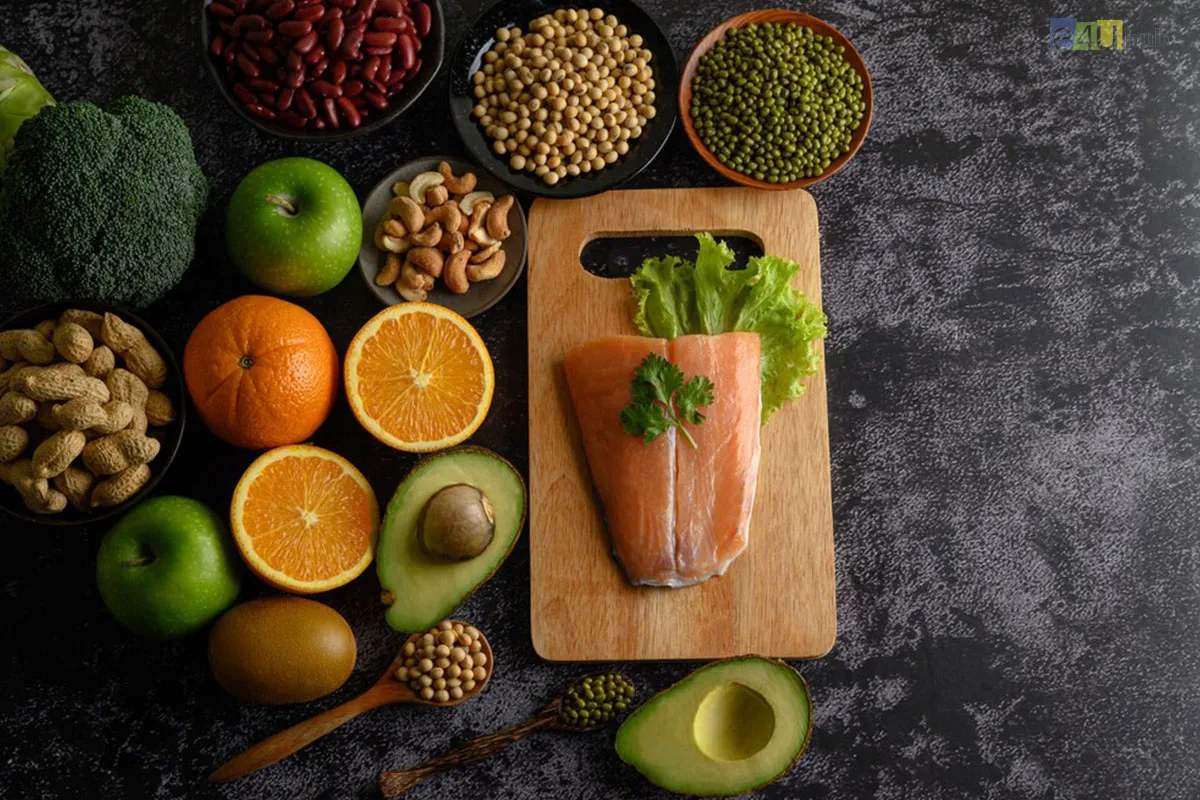
The Benefits of a Balanced Diet for Kids and Teens
- 05 Dec, 2024
- Health
- 386 Views
- 0 Comments
As parents and caregivers, one of the most important things we can do for our children and teenagers is to help them develop healthy eating habits. A balanced diet is crucial for their growth, development, and overall well-being. With the rise of fast food, sugary snacks, and sedentary lifestyles, ensuring that kids and teens receive the right nutrients can be challenging. However, a nutritious, well-balanced diet offers numerous benefits that can have long-term positive effects on their physical, mental, and emotional health.
Here’s a closer look at why a balanced diet is essential for kids and teens:
1. Supports Growth and Development
During childhood and adolescence, kids and teens undergo rapid physical growth. A balanced diet provides the essential nutrients—proteins, vitamins, minerals, and healthy fats—that support this growth. Nutrients like calcium, vitamin D, and magnesium are vital for bone development, while protein helps build muscles and tissues. A proper diet ensures that children have the energy and nutrition they need to develop strong bones, muscles, and organs.
2. Boosts Energy Levels
Children and teens are often full of energy and need a steady supply of nutrients to fuel their active bodies. A balanced diet helps provide a consistent energy source throughout the day. Carbohydrates, found in foods like whole grains, fruits, and vegetables, offer a slow release of energy, while healthy fats from sources like nuts, seeds, and avocados provide longer-lasting fuel. Without these nutrients, kids can experience fatigue, irritability, and lack of concentration, which can affect their performance in school and extracurricular activities.
3. Improves Concentration and Cognitive Function
What kids eat has a direct impact on their brain health. Nutrient-rich foods improve concentration, memory, and learning abilities. For example, omega-3 fatty acids, found in fish like salmon and in plant-based sources like walnuts and flaxseeds, are known to support brain function and mental clarity. Foods rich in antioxidants, such as berries, leafy greens, and colorful vegetables, help protect the brain from oxidative stress and support cognitive development. A balanced diet can help kids and teens focus better in school, process information more effectively, and retain what they learn.
4. Strengthens the Immune System
A healthy diet is key to maintaining a strong immune system. Nutrients such as vitamin C, zinc, and vitamin E, found in fruits, vegetables, nuts, and seeds, are essential for boosting immunity and helping the body fight off illnesses. A diet rich in these nutrients can reduce the frequency of colds, flu, and infections, keeping kids and teens healthy and able to attend school and participate in activities without interruption.
5. Promotes Healthy Weight Management
A balanced diet can help kids and teens maintain a healthy weight, which is important for their long-term health. Overeating unhealthy foods high in sugar and fat can lead to weight gain and an increased risk of developing conditions like obesity, diabetes, and heart disease. By providing a variety of nutrient-dense foods, such as fruits, vegetables, lean proteins, and whole grains, children can maintain a healthy weight and reduce their risk of these conditions. Encouraging healthy eating habits early on helps kids develop a positive relationship with food, setting the stage for healthier choices throughout their lives.
6. Improves Emotional Well-being
The connection between nutrition and mental health is becoming more evident. A well-balanced diet helps regulate mood and supports mental well-being. For example, complex carbohydrates, like those found in whole grains, can stabilize blood sugar levels and prevent mood swings. Omega-3 fatty acids, as mentioned earlier, have been shown to reduce the risk of depression and anxiety. Additionally, a balanced diet can help improve sleep, which in turn impacts mood and energy levels. Healthy eating helps kids and teens feel emotionally stable, enhancing their overall happiness and self-esteem.
7. Teaches Healthy Habits for Life
Introducing a balanced diet to kids and teens early in life sets the foundation for healthy eating habits that can last a lifetime. When children are encouraged to eat a variety of foods and understand the importance of nutrition, they are more likely to continue these habits into adulthood. Teaching kids to make informed food choices not only benefits their current health but also empowers them to take charge of their well-being in the future.
8. Prevents Chronic Diseases
A balanced diet helps prevent chronic health conditions that can develop later in life. Eating nutrient-rich foods reduces the risk of developing diseases such as heart disease, type 2 diabetes, and high blood pressure. Providing kids with a variety of colorful fruits and vegetables, whole grains, lean proteins, and healthy fats helps them develop habits that protect their long-term health.
Conclusion
The benefits of a balanced diet for kids and teens are numerous and far-reaching. From supporting growth and boosting energy levels to improving concentration and promoting emotional well-being, proper nutrition plays a key role in shaping their overall health and development. Parents and caregivers should focus on providing a variety of nutrient-dense foods, encourage healthy eating habits, and be role models for their children. By doing so, they’re not only helping their children thrive today but also setting them up for a lifetime of health and happiness.















Leave a Reply